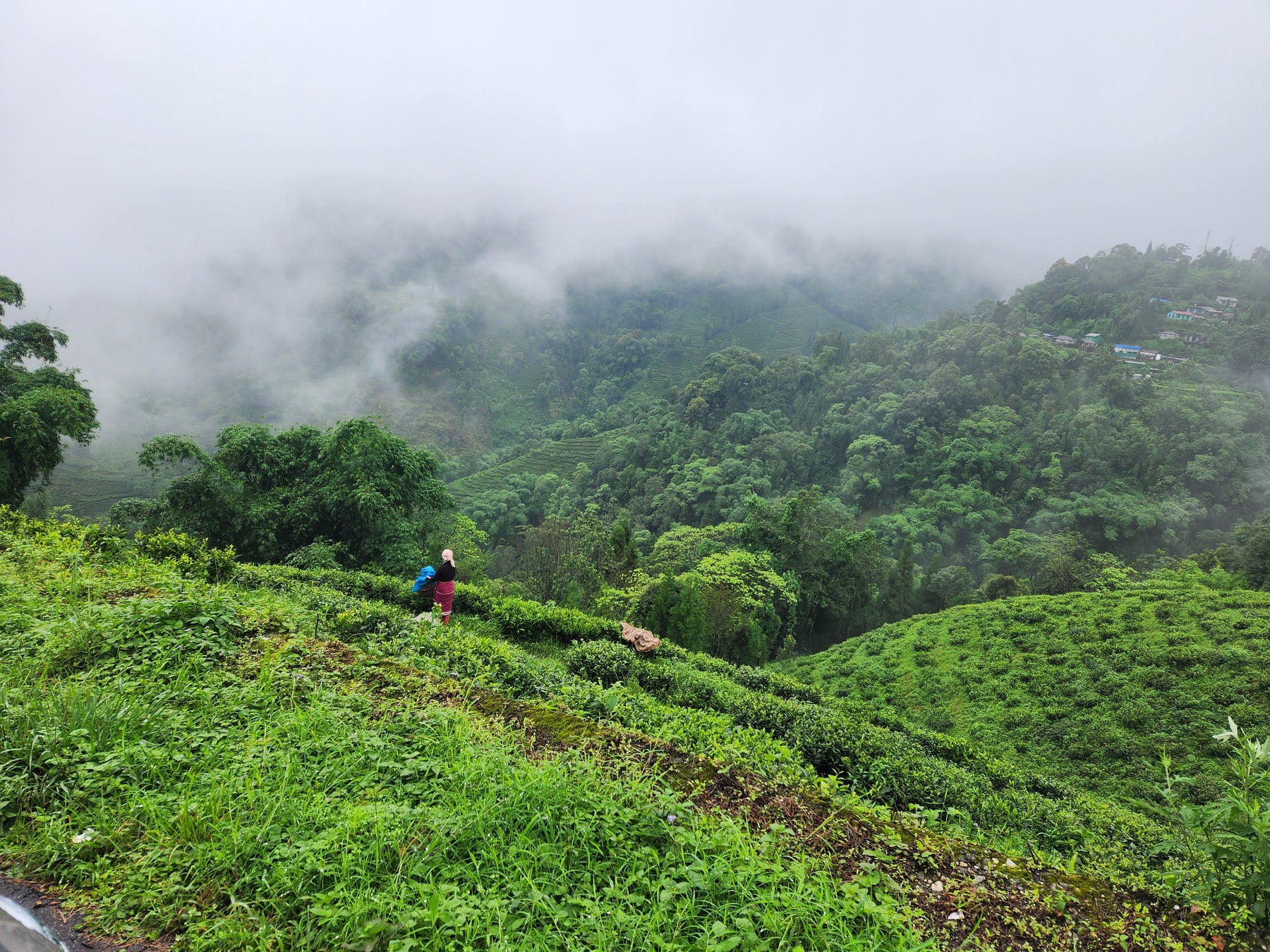
Visit to Okayti Tea Estate in Darjeeling
A winding road ribboning through the rain and mist of monsoons delivered us to Okayti tea estate, one of our newest partners from Darjeeling hills. Located in the picturesque Mirik Valley area, the tea estate is spread over 1600 acres with elevation ranging from 4000-6200 ft.

It felt like we were entering a massive magical garden. The clouds hung low and shrouded the tops of the green hills that were carpeted by tea bushes and forests. The air smelled green and sweet! Workers wearing bright rain gear were scattered in clumps on the hills as they picked the tea leaves. The houses of workers that we passed by looked well kept.

We were greeted by manager, Pankaj Choubey and his college going daughter, who was home for the holidays. Choubey has been working in the garden for more than 25 years. He was a treasure trove of knowledge and invariably we talked about biggest changes facing the Darjeeling tea industry - labor shortage, climate change and poor price realization in the bulk segment.

After some tea and biscuits at his bungalow we proceeded to the factory. The 2 mile distance was so steep that your ears kept popping! We saw tracts of the garden that were "reserved" for couple of storied UK tea companies. "No hunting" signs were in place. Okayti happens to be an organic tea garden. We started working with them once some of our regular partners decided to revert back to conventional farming methods.

The factory is located at the lowest point of the garden. The hills tower over it like sentinels. Some of the machines look like they are from 1888 when the factory was inaugurated. But they work fine. Harking back perhaps to the old-day-paranoia photography is not allowed inside the factory.

Right now "rains tea" is being manufactured. Because of excessive moisture in the leaves the flavors are diluted. The tea of this period is usually bought cheaply by blenders in vast amounts. These teas are good for flavoring and blending purposes. This is part of the bulk segment which we mentioned earlier.

The tea bushes of Okayti are predominantly "chinary." These are descendants of the original bushes that were brought from China and planted here in the 19th century. Over the years Darjeeling tea industry has seen growth of cultivars like AV2 which is a hybrid of Assam and China bushes. Although these hybrids can have lovely appearance and interesting flavors, the purists prefer their cuppa from chinary bushes.
We have ourselves been very pleased with our first flush selection from Okayti. The second flush 2023 has just been released and we hope you will enjoy it as well!
Later we visited the corporate office of Okayti in outside Siliguri, a bustling town in the foothills of Darjeeling. We had yet another round of tasting led impressively by a young team of tea professionals. One thing we remarkable we found was that tea was becoming a "cool" thing in India - no longer just your humble cup of chai.
Fittingly, Okayti tea garden's newest owner, Rajinder Baid who is only in his 40s, is said to begun his journey working a chai cart at a railway station in India. Sadly, we did not get to meet him this time.


Leave a comment